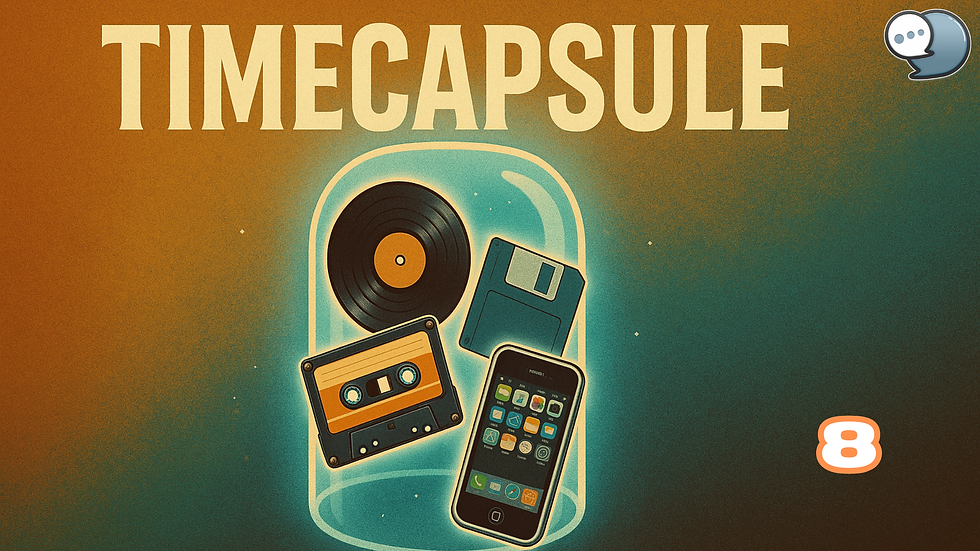Exploring the Impact of the OJ Simpson Trial on Media and True Crime Culture
- internchatstick
- Jun 16
- 4 min read

The O.J. Simpson trial, often called the “Trial of the Century,” changed the way media covered crime and influenced popular culture in profound ways. This high-profile case drew in millions of Americans and created a new standard for how legal proceedings were broadcast to the public. In this post, we will examine the trial's impact on media practices, race relations, celebrity culture, and how it catalyzed the true crime genre.
The Trial: A Media Spectacle
The O.J. Simpson trial began on November 2, 1994, and quickly evolved into a national phenomenon. The infamous white Bronco chase, broadcast live, shattered previous records for TV viewership. An estimated 95 million people tuned in to watch the slow-speed chase, which interrupted regular programming. This live coverage marked a significant shift in how legal proceedings could engage the public and effectively turned the courtroom drama into a form of entertainment.
The trial became a televised event that allowed the public to immerse themselves in the case day by day. Millions were glued to their screens, invested not just in the verdict, but also in the personal stories, arguments, and evidence presented. This trial sparked questions about journalistic ethics and the responsibility of media outlets, raising concerns about sensationalism and the potential to skew public opinion.
Racial Dynamics and Social Commentary
Beyond the legal intricacies, the O.J. Simpson trial highlighted deep racial divides in America. The trial occurred in a landscape marked by racial strife, especially following the Rodney King verdict and the ensuing riots in Los Angeles. Simpson, an African American sports icon, was accused of murdering his ex-wife, Nicole Brown Simpson, and Ron Goldman, a Jewish-American.
The trial polarized the country. Research showed that 70% of Black Americans believed Simpson was innocent, viewing the trial as a reflection of systemic racism and an unfair legal system. In contrast, many white viewers perceived him as guilty. This division turned the trial into a critical conversation starter about race relations and media representation. The courtroom became a stage for larger societal issues, with verdict outcomes reflecting broader concerns about justice and equality in America.
The Celebrity Factor
The celebrity factor played a critical role in amplifying the trial's significance. O.J. Simpson was not just a former NFL superstar but a cultural icon. His celebrity status attracted attention from a diverse audience, including fellow celebrities and the general public. Many Americans followed not just the evidence presented in court, but also the gossip and speculation surrounding the case.
This fascination transformed the trial into more than a legal battle; it became a spectacle. The public's relationship with trials shifted, laying the groundwork for future cases involving celebrities, such as Michael Jackson or Casey Anthony. The media began to cover trials not just for the legal implications, but for the drama surrounding personality and fame.
The Rise of True Crime Obsession
The O.J. Simpson trial was a milestone for the evolving true crime genre. The captivating and shocking developments throughout the trial tapped into a burgeoning interest in true crime stories. Following the trial, there was a noticeable spike in crime-related media, including documentaries, books, and podcasts.
For instance, after Simpson's trial, series like "The People vs. O.J. Simpson: American Crime Story" revived public interest in the case and examined its ramifications. Additionally, statistics show that true crime podcasts have seen a 50% increase in audience size over recent years, further exemplifying the genre's growing popularity. This trial set the stage for detailed explorations of crime narratives that continue to dominate various media platforms today.
Lasting Influence on Media Coverage
Today's media landscape is deeply influenced by the O.J. Simpson trial. Coverage of high-profile cases has evolved dramatically, with real-time updates and social media, creating a 24/7 news cycle that demands constant content. The public craves immediate updates and thorough discussions about ongoing trials.
However, this demand has consequences. Ethical dilemmas arise regarding sensationalism and the potential impact on the legal processes. The experiences from the O.J. Simpson trial reveal how media narratives can shape perceptions and influence outcomes even before a verdict is announced. Critical thinking about media portrayal and its implications is crucial as society continues to engage with legal stories.
Legacy and Reflection
The O.J. Simpson trial stands as a significant landmark in the relationship between media, celebrity culture, and the legal system. Its implications transcend courtroom practices, influencing how society consumes narratives around crime and justice. It ignited an obsession with true crime that remains prevalent today.
As we reflect on this case, it is essential to recognize its lasting effects on our understanding of race, media ethics, and celebrities' roles in legal proceedings. The trial underscores the intersection of justice, culture, and media, shaping how a nation processes and discusses crime.
By exploring the dynamics of the O.J. Simpson trial, listeners can gain deeper insights into the complexities of our ongoing fascination with true crime. This prompts essential conversations about ethical media coverage and its responsibilities in shaping public understanding.
Through this examination, we not only revisit a crucial historical event but also encourage thoughtful dialogue about the future of media engagement in criminal justice matters. The legacy of the O.J. Simpson trial continues to resonate as society navigates an increasingly complex landscape.






Comments